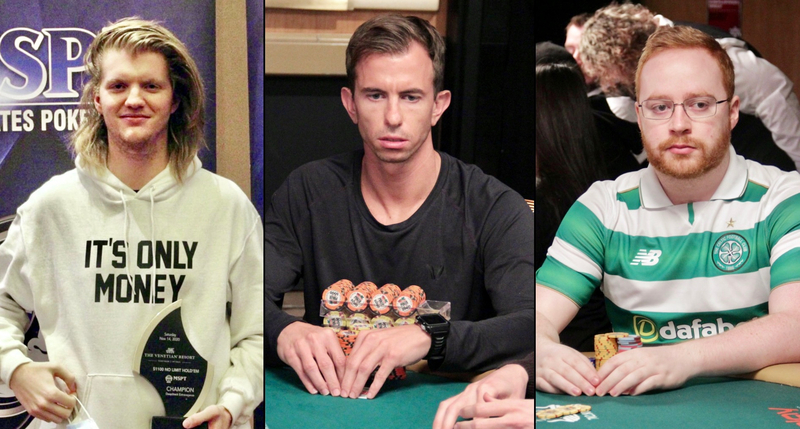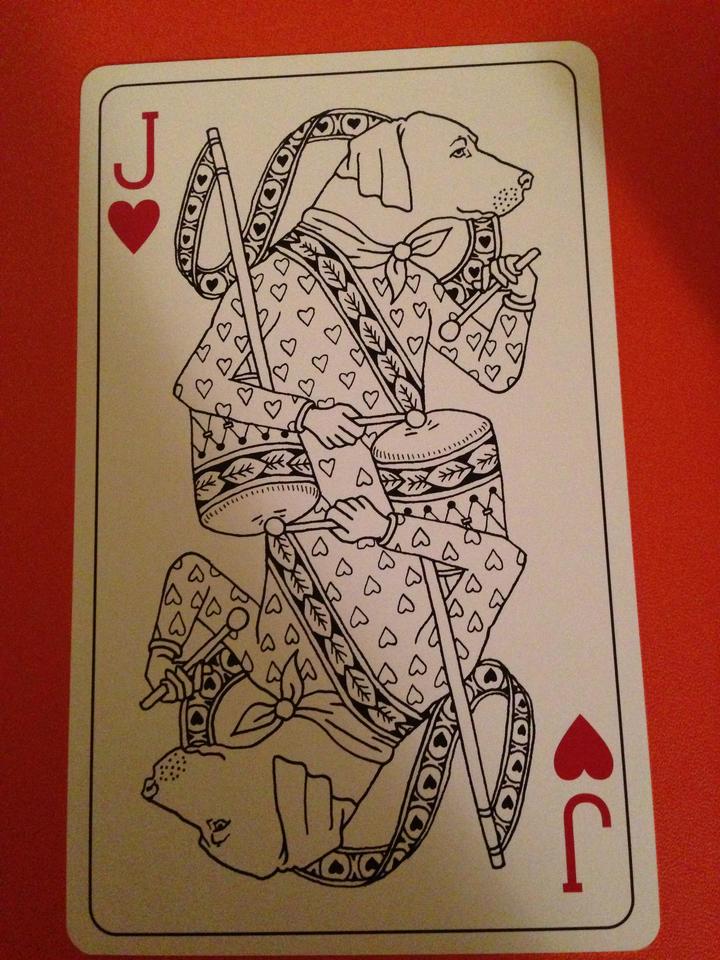
Professionals: Landon Tice, Shannon Shorr, and Niall Farrell
Craig Tapscott: Variance and downswings will hit every poker player at one time or another. Can you share a few incidents where you crashed and burned, and how did you regain your health to become a better player?
Landon Tice: The first time I had a significant downswing after about three months playing $ 1-2 online. I even crashed into dollars, but around 30 EV buy-in (expected value). It was quite a brutal experience as I didn't necessarily have anything to show for my work except the yellow EV line which kept growing while my results remained the same.
I'm pretty close to [poker vlogger] Joey Ingram. I called him to talk about it, just because it was such a new feeling. I realized that someone can really earn decent money by playing at these stakes. He just told me not to worry too much about it and just go through it and it would all work out. I completely trusted his advice and just played and learned. It was about 18 months ago, but I still remember the feeling of despair as if it were yesterday. Of course, declines still happen, but the dollar amount is very different to what it was then. Poker just does this to you as you move up in the stakes where the stakes below just go numb and the stake above becomes the new normal.
The first time I got through a nearly six digit downswing was when I started playing higher stakes live and online. I played $ 20 - $ 40 on Bellagio in Las Vegas and $ 25 - $ 50 and $ 50 - $ 100 online. It was the first time that I experienced a significant drop in money. I felt like I was playing better than ever at the time thanks to a lot of study and work on my game. But sometimes the deck has other ideas and I just couldn't win all-in at these limits to save my life for about a month in a row. It was definitely frustrating.
I just grinded a few MTTs and studied every day to give myself the best chance of recovering and ended up winning a lot of online multi-table tournaments and getting those dollars back in a quick way. I remember thinking it would take me a year to get out of the hole I was in. But I still put one foot in front of the other and kept learning and improving, and got out of it in 45 days. Soon after getting out of this hole, I won 1 $, 100 buy-in MSPT main event in Venetian for $ 201,000.
I have found that during these downswings in the past it has been difficult for me to separate my identity as a person from my poker performance and have often found myself battling a lot. Sometimes I had tunnel vision and thought that I had to "get out" of the swing. I've had a meditation practice, regular fitness training, and a healthy diet for some time. All of this has turned out to be of great help to long-term sustainability in this difficult industry.
Niall Farrell: When I do downswing I like to take a step back and I will get a couple of eyes on my game. I want to make sure the negative variance doesn't affect how I play. It is very easy and very human if you are unlucky enough to start changing your game for the worse. For example, you don't pull the trigger for a good bluff because you've been into it for weeks, you fail to get a good bluff because everyone always has it, etc. Pokerstars Spring Championship of Online Poker ( SCOOP ) events are a good example of this. I lost during SCOOP for the first five years, but by being calm and reasonable with myself, I can go back and say, “These are very valuable tournaments. I'm a good gamer and I just have to control what I can control. " And now I have two SCOOP high titles and much higher profits from SCOOP generally.
The World Series of Poker is also a great example of this. I lost the first few years which is easy to do in big tournaments. Back then I had the purple patch in 2013-2018 where I made three final tables including the $ 111, 111 High Roller for one drop. I was only playing because I was doing well this summer. In 2017 in Europe, I won a bracelet in $ 25,000 and then made it to the final table of the Main Event, where I took the kings to aces to get a chip lead with five or six left, ending a decent shot at Greg Merson's hilariously improbable win. For the past few years, I have been on the other side of the variance on WSOP but when you look back at my hot run in those years, it's fair enough that I can retroactively pay some of the premiums.
Craig Tapscott: Going to the tilt and letting a bad beat or bad decision negatively affect you at the table can ruin your chances of diving in and even cash. What are some ways to deal with the emotional fluctuations in poker?
I think at the beginning of my poker career (which now includes), I still have the same, if not more, desire to achieve myself. I still love measuring the hours, going through the ups and downs that poker has to offer, and making the most of each day. I have many successful friends who have been around for decades. They keep telling me that my relationship with poker will change somewhat as I get older. It takes longer to stay in the game and go through many days in the game for extended periods of time. While I think having an unemotional approach to the game and seeing poker as playing from one hand to the other is beneficial, there is also the personal pleasure that I get when experiencing a game that lasts moment to moment.
I think it helped me a lot to be able to forgive myself for the mistakes I make and to realize that poker is a long game and that I will never be able to play perfectly in every situation possible. The best I can do for myself is accept the consequences of my actions, good or bad, and move on.
I remember running pretty deep in the $ 1, 600 Venetian Tournament right after my big win where I had a stack on the bubble bubble and, having faced a bet, decided to go for an extremely aggressive all-in bluff. I ended up being called by the tank and losing a few chips. Instead of feeling sad and upset about losing a pot, I was content to trust myself and take what I thought was winning a lot of EV. Sometimes you don't get the result you want, but the real pain is that you don't take a risk if you think something is going to work for you.
The way I deal with difficult issues after the fact is just hanging out with my friends, talking about later hands and trying to learn as much as possible. Then I focus on the next opportunity I need to improve, be it multi-table tournaments or cash games. Spending time away from my computer is something I do now more after a hard days, and having a community to really support me is incredibly amazing. I am very grateful for that.
Shannon Shorr: Being a tough guy is all about concentrating in a game where you constantly experience disappointment or test yourself. I've found that taking a deep breath at the table every now and then is great to get back to that moment. It is very important not to get caught in previous hands as mistakes can be very costly especially when playing no-l
imit hold'em.
I think trying to take care of yourself in your personal life can help you deal with emotional control issues that will be costly in poker. Something I can't recommend highly is that poker players should force themselves to sit with their emotions., Sometimes after the poker sessions, instead of trying to always escape them with alcohol, sex, pot, etc. thoughts. Such a wide range of emotions will be experienced by the individual each day. It's nice to know where you are with things and what you can do differently to improve your game.
Landon Tice started playing pro 2019, jumping from micro-stakes to cash games and mid-stakes and high-stakes tournaments. In November 2020, a Florida resident won MSPT Main Event in Venetian for $ 201, 529. He is also a coach at Matt Berkey's Solve For Why.
Shannon Shorr made the tournament in 2006, a final table in the Aussie Millions Main Event and won the Bellagio Cup Main Event for another $ 960, 690. The University of Alabama graduate has many other final tables including a runner-up for 2019 WPT Gardens Poker Championship. He now has over $ 8.2 million in career earnings.
Niall Farrell was the eighth person to win a poker triple crown by winning WSOP bracelet, WPT title i EPT main tournament championship. Scottish poker pro defeated 2015 EPT Malta main tournament, 2016 WPT Caribbean Poker Party and € 25,000 high stakes with a buy-in of 2017 WSOP Europe. He has just over $ 6 million in career earnings.
